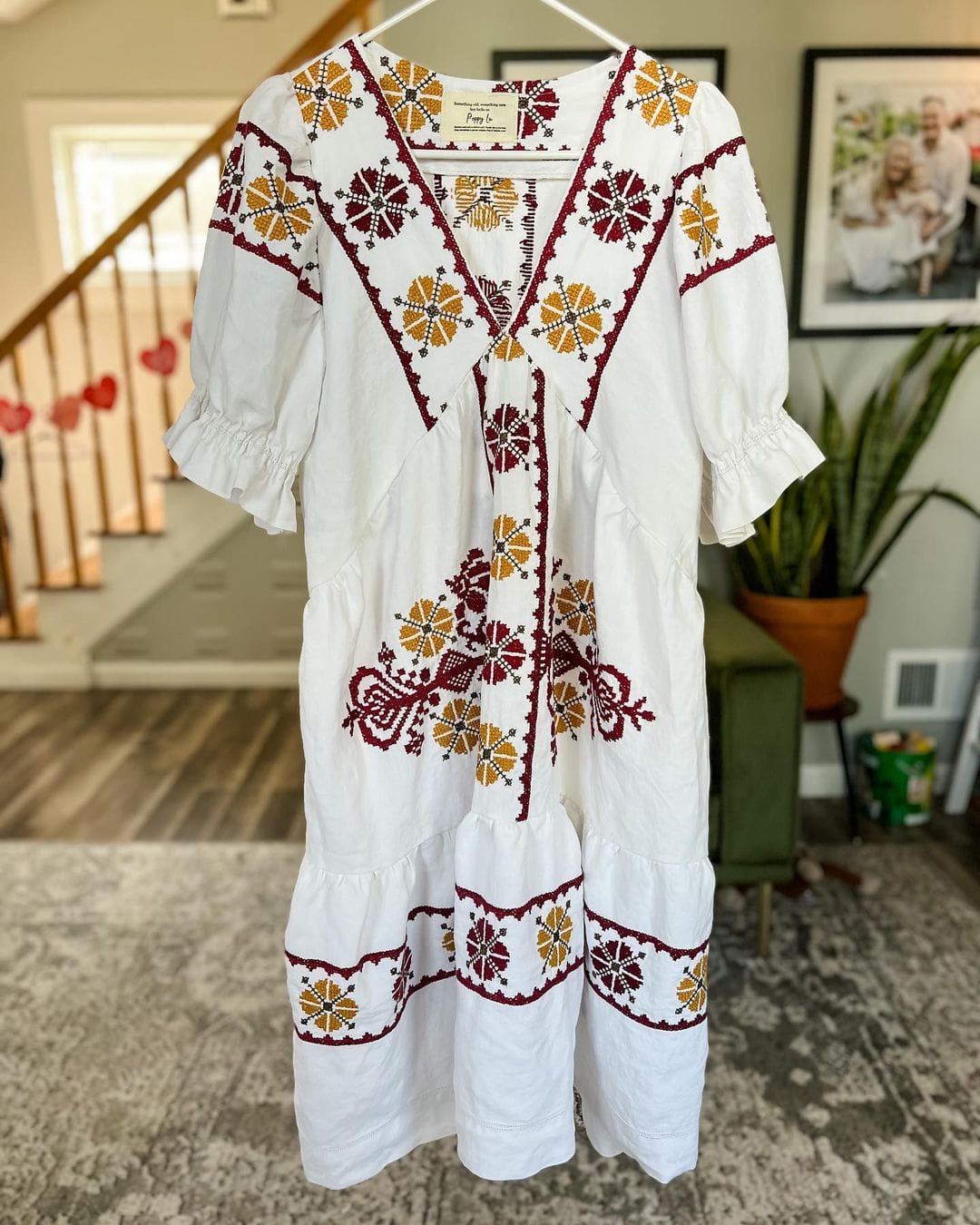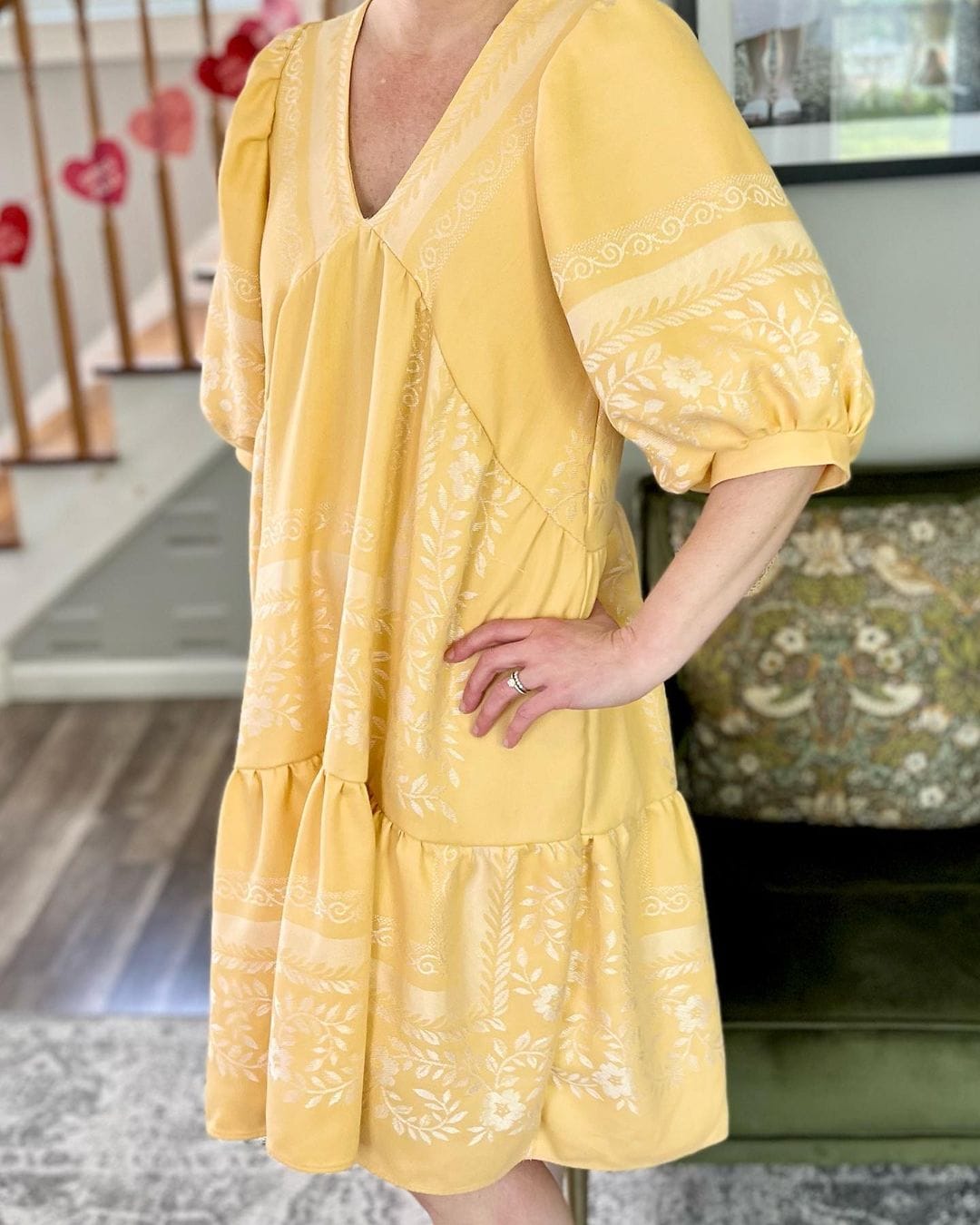Many of today’s fashion trends, such as cottage core and coquette, are focused on traditional ideas of femininity. These trends also often associate ideas of femininity with bucolic living, folk traditions, and domestic life. Maggie Nelson who owns the small business brand Poppy Lu Clothing sees this as an opportunity to create sustainable slow fashion pieces. Poppy Lu Clothing upcycles vintage fabrics from homewares such as table cloths, curtains, and even sheets. In Nelson’s hand, they transform into frilly-flowy dresses, perfect for the summer.

This means both the aesthetics that the brand embodies and its commitment to recycle old and vintage fabric reminisce about a seemingly bygone era where women were confined to traditional gender roles and societal norms. These pieces honour their lives, and show that similar struggles, the struggles of today’s women’s mothers, grandmothers, and all the women that came before them, still exist to this very day. Hence, Poppy Lu Clothing helps to both reduce fabric waste, while also highlighting just how far women’s empowerment has come, and how much work there is still left to be done. This is why the work that Poppy Lu Clothing does is aligned with the United Nations Sustainable Development Goals of Gender Equality and Responsible Consumption and Production.

In an interview with the British Broadcasting Company (BBC), influencer and stylist, Maree Ellard, outlined how coquette, an umbrella term for the aesthetics, is first and foremost about bringing a sense of belonging and companionship between women and everyone else who desires to express their feminine side. As previously outlined, this is the spirit behind Poppy Lu Clothing. It is a spirit of solidarity, a sisterhood between those who express themselves femininely, that the brand and its sustainable core has extended into a solidarity with Mother Nature.

Nelson sources her fabrics for Poppy Lu from places such as thrift stores, estate sales, and even from her own mother’s hand-me-downs. After doing so, she often shares her process on social media, amassing over 415 thousand followers on Instagram that are also interested in learning how to transform their own old and vintage fabrics into trendy dresses and tops. This means that Poppy Lu Clothing has also created a ripple effect in its audiences and customers, inspiring them to take up sewing and create their own upcycled pieces at home.

At a time when the world produces 92 million tonnes of textile waste, Poppy Lu Clothing is giving everyday people the tools to make an impact and solve this problem at the grass roots level. This is exactly why Poppy Lu Clothing is more than a fashion brand, it is also a movement towards sustainable and mindful consumption of trendy everyday-wear. The brand manages to show that being sustainable can also mean being stylish and trendy.
Find out more about Poppy Lu Clothing by Maggie Nelson and their other initiatives by checking their Instagram on @poppyluclothing.
